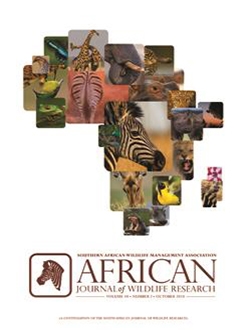Rhinoceros poaching has been recognized the world over as a conservation crisis, the result of the high price of horn and demand in Asian markets. The commitment and participation of local people in conservation activities, however, are crucial for conservation success. Here we assess attitudes and perceptions towards rhino poaching and conservation in light of surveys in two local communities adjacent to the Hlane Royal National Park in eSwatini where perhaps 100 black (Diceros bicornis) and white (Ceratotherium simum) rhino occur. Our survey of 60 households addressed perceptions and attitudes towards rhino conservation and willingness to participate in rhino poaching and conservation activities. No efforts have been made to involve local people in conservation activities, and the people do not benefit from the park's activities. About 20% of respondents expressed their willingness to help rhino poachers provided they are paid for their services. Of the remaining 80%, some mentioned that they would not help poachers for fear of being apprehended. Still, some mentioned that they would not help poachers because of their concern about poaching and believe its prevention is important. Park authorities here and elsewhere could invest in building better people–park relationships, and provide opportunities for local communities to participate in conservation activities. Conservation policies to co-manage the resources could be used to deter poaching and to conserve wildlife involving local community members in monitoring and enforcement strategies.
How to translate text using browser tools
29 January 2020
Community Attitudes and Perceptions Concerning Rhinoceros Poaching and Conservation: A Case Study in Eswatini
Hlelolwenkhosi S. Mamba,
Timothy O. Randhir,
Todd K. Fuller
ACCESS THE FULL ARTICLE
Ceratotherium simum
co-management
communities
conservation
Diceros bicornis
incentives
rhinoceroses






